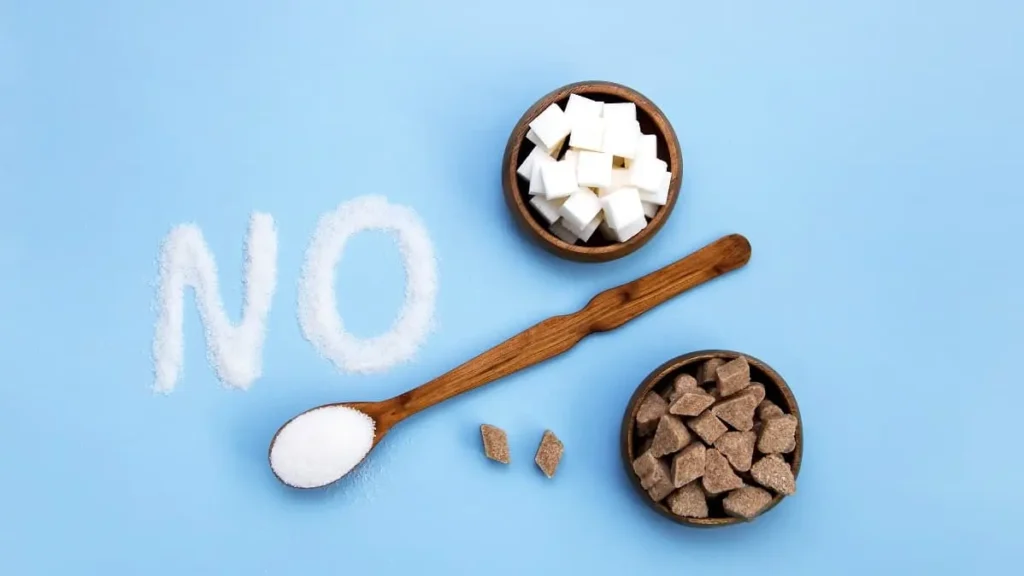Have you ever found yourself flicking through Instagram and making yourself miserable because someone else has an effortless glow, making you feel like a second-class citizen? We’ve all been there. But what if that radiance wasn’t from the fancy filters or expensive serums? What if the key to unlocking your inner light was hiding in plain sight… on your dinner plate?
True beauty starts from within—that’s something we discuss at BiE, a brand dedicated to clean beauty. And guess what? It means what you nourish your body with is essential for that coveted healthy glow. So ditch the crash diets and fad cleanses! We’re here to spill the tea (or should we say, green juice?) on how to eat your way to luminous skin, naturally.
Science of Achieving Glowing Skin
Our skin, the largest organ in the body, is continually undergoing renewal. Newborn cells under the deepest layer of the skin are conveyed to the skin’s surface, which replaces old cells. The process through which this renewal cycle happens is called cell turnover and is indispensable for maintaining a healthy and youthful appearance.
Here’s the catch: The skin needs an adequate supply of the suitable building materials to function correctly.
That’s where food comes in! A balanced diet supplies all the essential vitamins, minerals, and antioxidants for cell turnover, collagen production (the protein responsible for keeping skin plump and elastic), and protection against environmental damage. Eating a variety of nutrient-rich foods ensures that your skin gets what it needs to stay vibrant.
The Rainbow on Your Plate: Food for Glowing Skin
Now, let’s get down to the good stuff – the foods that can transform your skin from drab to fab! Think of your plate as a glowing skin canvas, and here are the vibrant ingredients you need to paint your masterpiece:
Vitamin A Powerhouse: Sweet potatoes, carrots, spinach, and even that occasional slice of liver are brimming with vitamin A, a superhero for cell regeneration and skin repair. Vitamin A: Think of Vitamin A as your skin’s natural retinol.
It helps to reduce wrinkles, fade dark spots, and smooth out rough patches. Adding these foods to your diet can provide the retinol-like benefits you crave without the high price tag.
Vitamin C: The body naturally utilizes this water-soluble antioxidant power to increase collagen synthesis, maintaining the skin’s firmness and elasticity. Great sources of this can
be found in citrus fruits, strawberries, bell peppers, and broccoli. Regular intake of these could help keep your skin looking youthful and bouncing.
Vitamin E: Like a protective shield for your skin, vitamin E prevents free radicals and helps repair damaged skin cells. Vitamin E Nuts, seeds, and green leafy vegetables are a rich source of vitamin E. One can include them in their diet to have the skin glowing and protected.
Infinitely Hydrating: Water is not only essential to life, but it also provides the ultimate hydration for your skin. Drink at least eight glasses a day to keep your skin plump and, most importantly, to prevent that dull, dehydrated look. Remember, too, that water-rich fruits and vegetables like watermelon, cucumber, and celery can also be factored into your daily hydration number.
Berry Good Antioxidants: Antioxidants are tiny superheroes for the skin. They can fight oxidative stress and protect from environmental damage. Foods such as berries (likely Strawberries, blueberries, and raspberries), dark chocolate, and green tea are loaded with antioxidants, so this will ensure that your skin does not age poorly and keeps it vibrant.
Essential Fatty Fighters: Don’t fear healthy fats! Salmon, flaxseeds, walnuts, and avocados are sources of this type of fat, as they contain omega-3 fatty acids with anti-inflammatory properties that are just fantastic. Inflammation can flare up skin conditions like acne or eczema, so help keep your skin cool and clear with the help of these fats.
Zinc Your Way to Shine: Zinc is a mineral vital in skin healing and cell regeneration. Add pumpkin seeds, chickpeas, and lean meats into your diet to make sure that you derive enough of this glow-boosting nutrient.
Balanced Diet for Glowing Skin
- Creating a colorful plate isn’t just about aesthetics; it’s a smart strategy for skin health. Each vibrant food adds a unique benefit, ensuring your skin gets a holistic range of nutrients. Think of every meal as a step toward a more radiant you.
- Morning Routine: Start your day with a smoothie packed with spinach, a carrot, and some berries. This blend gives you a burst of vitamins A and C along with antioxidants, setting a strong foundation for your skin’s daily needs.
- Midday Boost: For lunch, a salad with mixed greens, bell peppers, and a serving of salmon covers your vitamin and omega-3 bases. Add a squeeze of lemon for extra vitamin C and flavor.
- Snack Time: Keep hydrated and satisfied with cucumber slices and a handful of walnuts. This combination provides hydration and essential fatty acids, combating midday skin dryness.
- Evening Glow: Dinner could be a hearty mix of roasted sweet potatoes, a lean meat like chicken for zinc, and a side of steamed broccoli. This meal supports your skin’s overnight repair with a balance of vitamins and minerals.
- By incorporating these nutrient-rich foods into your daily diet, you are not just feeding your body but also investing in a lifetime of healthy, glowing skin.
Read More – Summer Skincare for Your Skin Type

Foods to Avoid for Glowing Skin
- Just as several foods can improve your skin, some could ruin it. Here are a few culprits:
- Sugar: When taken at high levels, sugar initiates the process of glycation, in which collagen and elastin get damaged. This results in an older, less vibrant appearance. To curb sugar consumption, try drinking and eating fewer sweetened beverages and snacks.
- Dairy: Some individuals break out from dairy or other skin-irritating foods. If you notice that your skin breaks out with the consumption of dairy, try having an alternative like almond milk or coconut yogurt. This should help alleviate those episodes.
- Refined Foods/Processed Foods: These contain harmful fats, salt, and sometimes sugar, all of which may potentially have an inflammatory effect and cause a flare-up. Choose whole, unprocessed foods for clear and healthy skin.
Understanding the Impact
Avoiding these foods is more than just a surface-level change; it’s about understanding how they affect your body internally, which in turn impacts your skin.
Sugar and Glycation: Glycation is a process where sugar molecules bind to proteins like collagen and elastin, causing them to stiffen and lose functionality. This results in sagging, wrinkles, and a dull complexion. Reducing your intake of sugary foods and drinks can help maintain your skin’s elasticity and youthful appearance.
Dairy and Breakouts: Dairy products can be inflammatory for some people, leading to breakouts and skin irritation. This is often due to hormones present in milk, which can disrupt your body’s hormonal balance. If you’re prone to acne, consider dairy alternatives such as almond milk, oat milk, or coconut yogurt. These options can provide similar nutritional benefits without triggering skin issues.
Processed Foods and Inflammation: Processed foods are often high in unhealthy fats, salt, and added sugars, all of which can contribute to inflammation in the body. Chronic inflammation can exacerbate skin conditions like acne, eczema, and psoriasis. Opting for whole, unprocessed foods helps reduce inflammation and promotes clearer, healthier skin.
Making Healthier Choices
Healthy Swaps: Instead of reaching for a sugary snack, choose fresh fruit or a handful of nuts. These options provide natural sweetness and essential nutrients without the negative effects of sugar.
Non-Dairy Alternatives: Explore the variety of non-dairy products available. Almond milk, coconut yogurt, and cashew cheese are delicious alternatives that can reduce the risk of breakouts.
Whole Foods: Incorporate more whole foods into your diet. Fresh vegetables, fruits, lean proteins, and whole grains provide the nutrients your skin needs without the inflammatory properties of processed foods.
Superfoods That Helps Your Skin Glow
Let’s explore some superfoods that deserve a place on your plate because they work wonders for your skin:
Avocado
Avocado is packed with healthy fats, very rich in Vitamins E and C, plus antioxidants—it hydrates and moisturizes your skin, reducing inflammation.
Berries
Blueberries, strawberries, and raspberries are berries that fight free radicals and prevent signs of aging with their antioxidants. Add them to your breakfast or munch on them during the day as a snack.
Turmeric
Turmeric is yet another superfood that could help soothe the skin and remove any redness because of its anti-inflammatory properties. If you do not want to apply a direct face mask, include it in soups, teas, or smoothies to get that golden glow. Savor one each day for cool skin that’s damage-proof.
Beyond the Plate: A Comprehensive Approach to Glowing Skin
While a healthy diet is foundational to getting skin that shines, it’s not the only card to play. Here are some additional lifestyle tips to complement your inner glow journey:
Keep Stress Under Control
Stress can be a massive trigger for skin problems. Engage in relaxation techniques, such as yoga, meditation, or deep breathing, to keep cortisol in check.
Catch Those Zzz’s
Aim for at least 7-8 hours of quality sleep per night. During the nighttime, your skin will try to repair and regenerate.
Sun’s Out, Protection On
Exposure to the sun is a significant factor in wrinkles and hyperpigmentation. Apply a broad-spectrum sunscreen with an SPF of at least 30, even on cloudy days.
Hydration: The Unsung Hero
Water is essential for keeping your skin hydrated and supple. Ensure you drink enough H2O, support all of the lousy stuff flushing out, and your skin will stay plump and radiant. Strive for at least eight glasses daily, but remember that hydrating foods such as cucumbers, watermelon, and oranges will also count toward your intake.
Conclusion
Glow from the Inside Out Healthy, glowing skin is nothing one needs to work extremely hard at, and it certainly should not have to carry a hefty price either. Making good choices on foods—that nourish—your skin can help your skin be healthy inside out.
Always remember that skincare is not only about using the right products but also enjoying a healthy diet and leading an upbeat style of living. Next time you look in the mirror, remember your glow comes from the kitchen, not your skin regime. Eat well, glow well!

